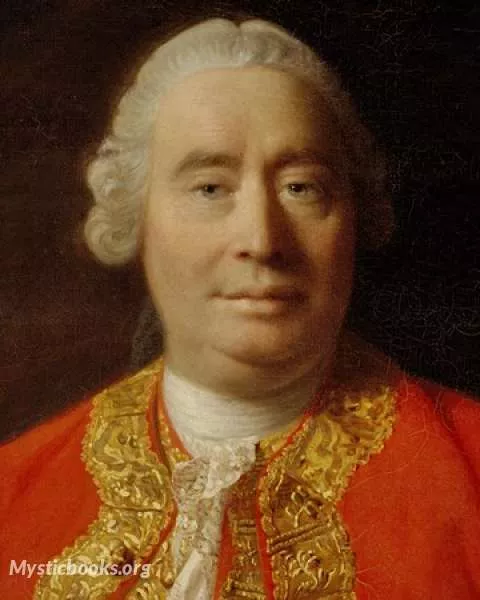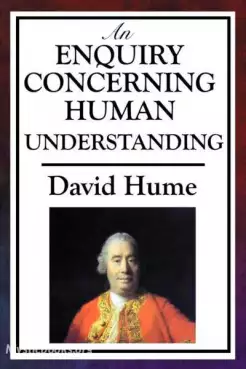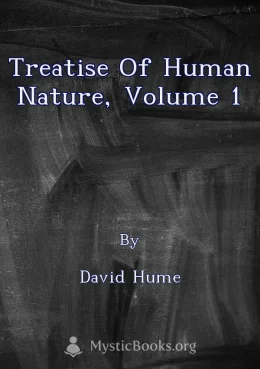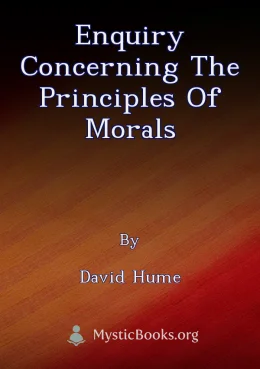
Timeline
Title
Country/Nationality
David Hume
David Hume was a Scottish Enlightenment philosopher, historian, economist, librarian and essayist, who is best known today for his highly influential system of philosophical empiricism, scepticism, and naturalism. Beginning with A Treatise of Human Nature (1739–40), Hume strove to create a naturalistic science of man that examined the psychological basis of human nature. Hume argued against the existence of innate ideas, positing that all human knowledge derives solely from experience. This places him with Francis Bacon, Thomas Hobbes, John Locke, and George Berkeley as a British Empiricist.
Hume argued that inductive reasoning and belief in causality cannot be justified rationally; instead, they result from custom and mental habit. We never actually perceive that one event causes another but only experience the "constant conjunction" of events. This problem of induction means that to draw any causal inferences from past experience, it is necessary to presuppose that the future will resemble the past, a presupposition which cannot itself be grounded in prior experience.
An opponent of philosophical rationalists, Hume held that passions rather than reason govern human behaviour, famously proclaiming that "Reason is, and ought only to be the slave of the passions." Hume was also a sentimentalist who held that ethics are based on emotion or sentiment rather than abstract moral principle. He maintained an early commitment to naturalistic explanations of moral phenomena and is usually taken to have first clearly expounded the is–ought problem, or the idea that a statement of fact alone can never give rise to a normative conclusion of what ought to be done.
Hume also denied that humans have an actual conception of the self, positing that we experience only a bundle of sensations, and that the self is nothing more than this bundle of causally-connected perceptions. Hume's compatibilist theory of free will takes causal determinism as fully compatible with human freedom. His views on philosophy of religion, including his rejection of miracles and the argument from design for God's existence, were especially controversial for their time.
Hume influenced utilitarianism, logical positivism, the philosophy of science, early analytic philosophy, cognitive science, theology, and many other fields and thinkers. Immanuel Kant credited Hume as the inspiration who had awakened him from his "dogmatic slumbers."
Books by David Hume

An Enquiry Concerning Human Understanding
An Enquiry Concerning Human Understanding is a book by the Scottish empiricist philosopher David Hume, published in English in 1748. It was a revision of an earlier effort, Hume's A Treatise of Human Nature, published anonymously in London in 1739–40...

Dialogues Concerning Natural Religion
Dialogues Concerning Natural Religion is a philosophical work by the Scottish philosopher David Hume, first published in 1779. Through dialogue, three philosophers named Demea, Philo, and Cleanthes debate the nature of God's existence. Whether or not...

The History of England from the Invasion of Julius Caesar to the Revolution of 1688, Volume 1A
The History of England is David Hume's great work on the history of England (also covering Wales, Scotland and Ireland), which he wrote in instalments while he was librarian to the Faculty of Advocates in Edinburgh. It was published in six volumes in...

History of England from the Invasion of Julius Caesar to the Revolution of 1688, Volume 1B
This is Volume 1B which covers the reigns of Henry III to Richard III. The History of England is David Hume's great work on the history of England (also covering Wales, Scotland and Ireland), which he wrote in instalments while he was librarian to t...

History of England from the Invasion of Julius Caesar to the Revolution of 1688, Volume 1C
This is Volume 1C which covers the reigns of Henry VII to Mary I. The History of England is David Hume's great work on the history of England (also covering Wales, Scotland and Ireland), which he wrote in instalments while he was librarian to the Fa...

History of England from the Invasion of Julius Caesar to the Revolution of 1688, Volume 1D
This is Volume 1D which covers the reigns of Elizabeth I to James I. The History of England is David Hume's great work on the history of England (also covering Wales, Scotland and Ireland), which he wrote in instalments while he was librarian to the...

History of England from the Invasion of Julius Caesar to the Revolution of 1688, Volume 1E
This is Volume 1E which covers the reign of Charles I and the Commonwealth. The History of England is David Hume's great work on the history of England (also covering Wales, Scotland and Ireland), which he wrote in instalments while he was libraria...

History of England from the Invasion of Julius Caesar to the Revolution of 1688, Volume 1F
This is Volume 1F which covers the reign of Charles II and James II. The History of England is David Hume's great work on the history of England (also covering Wales, Scotland and Ireland), which he wrote in instalments while he was librarian to th...

A Treatise Of Human Nature, Volume 2
The Treatise is a classic statement of philosophical empiricism, scepticism, and naturalism. In the introduction Hume presents the idea of placing all science and philosophy on a novel foundation: namely, an empirical investigation into human nature....

Treatise Of Human Nature, Volume 1
This book, published in two volumes called "books" by the author, is a treatment of everything from the origin of our ideas to how they are to be divided. It includes important statements of Scepticism and Hume's experimental method. Part 1 deals wit...

Enquiry Concerning the Principles of Morals
In *An Enquiry Concerning the Principles of Morals*, David Hume delves into the fundamental nature of morality, exploring the origin and foundation of ethical principles. He challenges the prevailing view that morality is based solely on reason, argu...